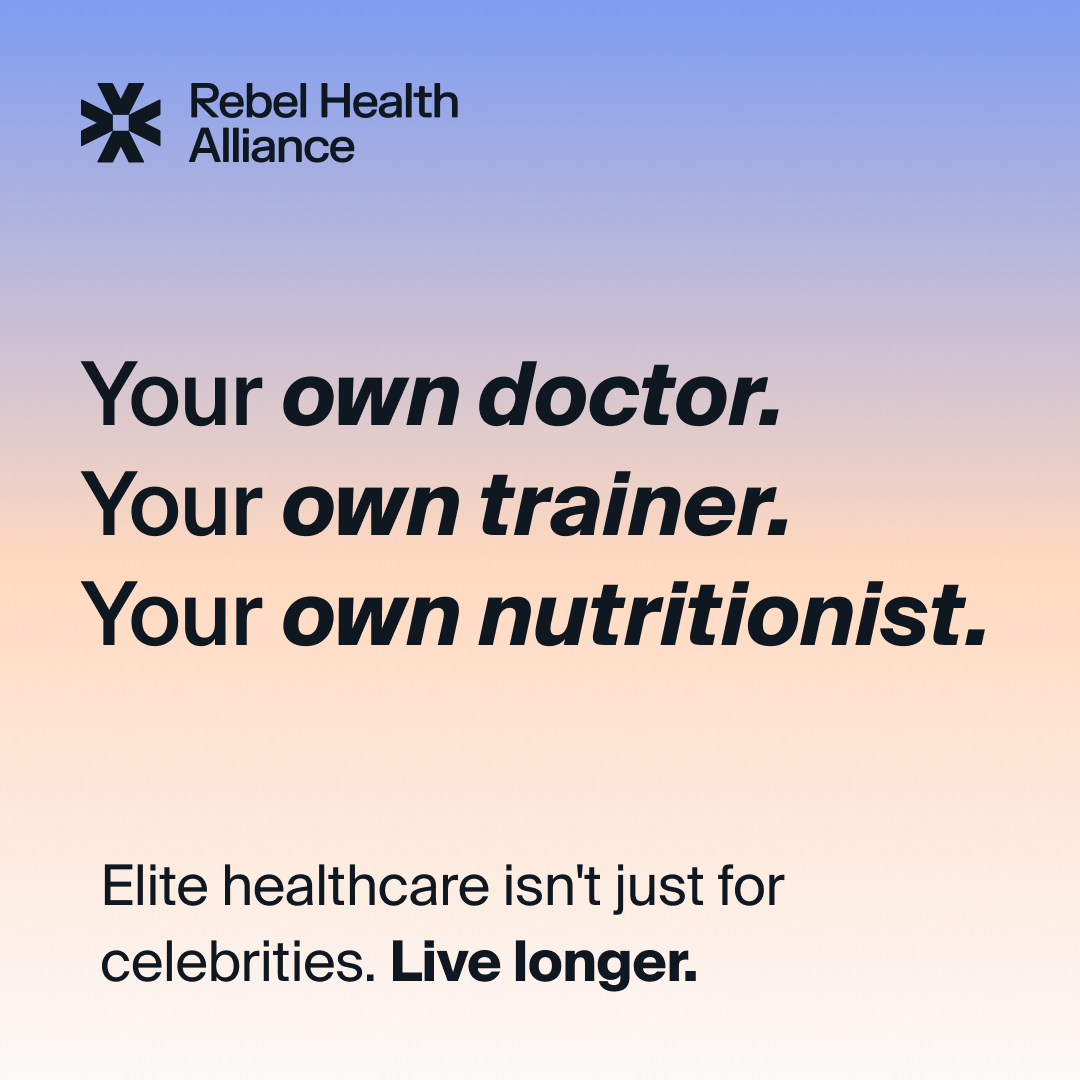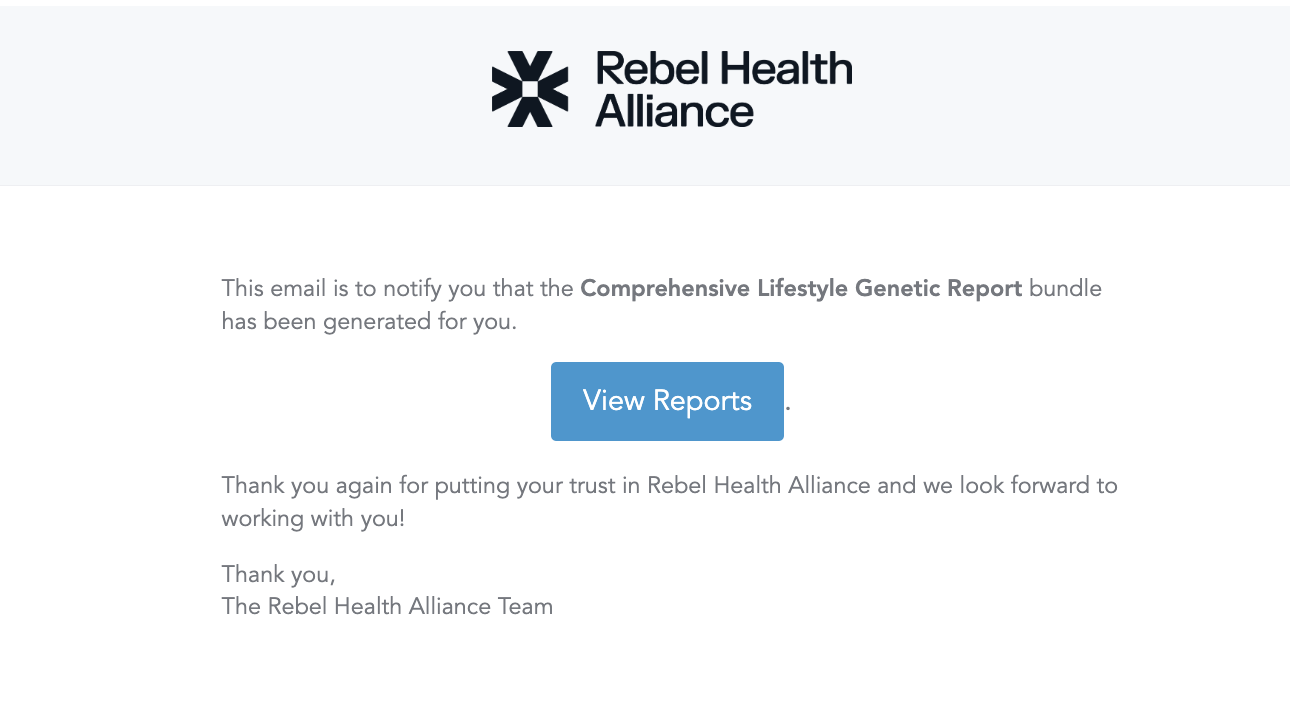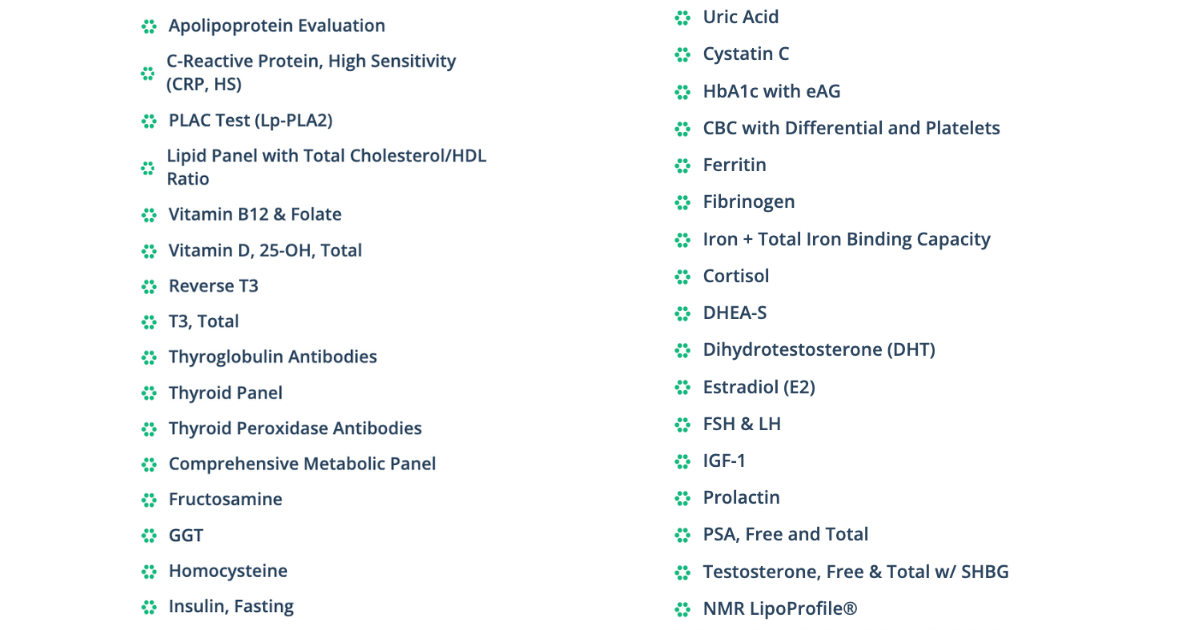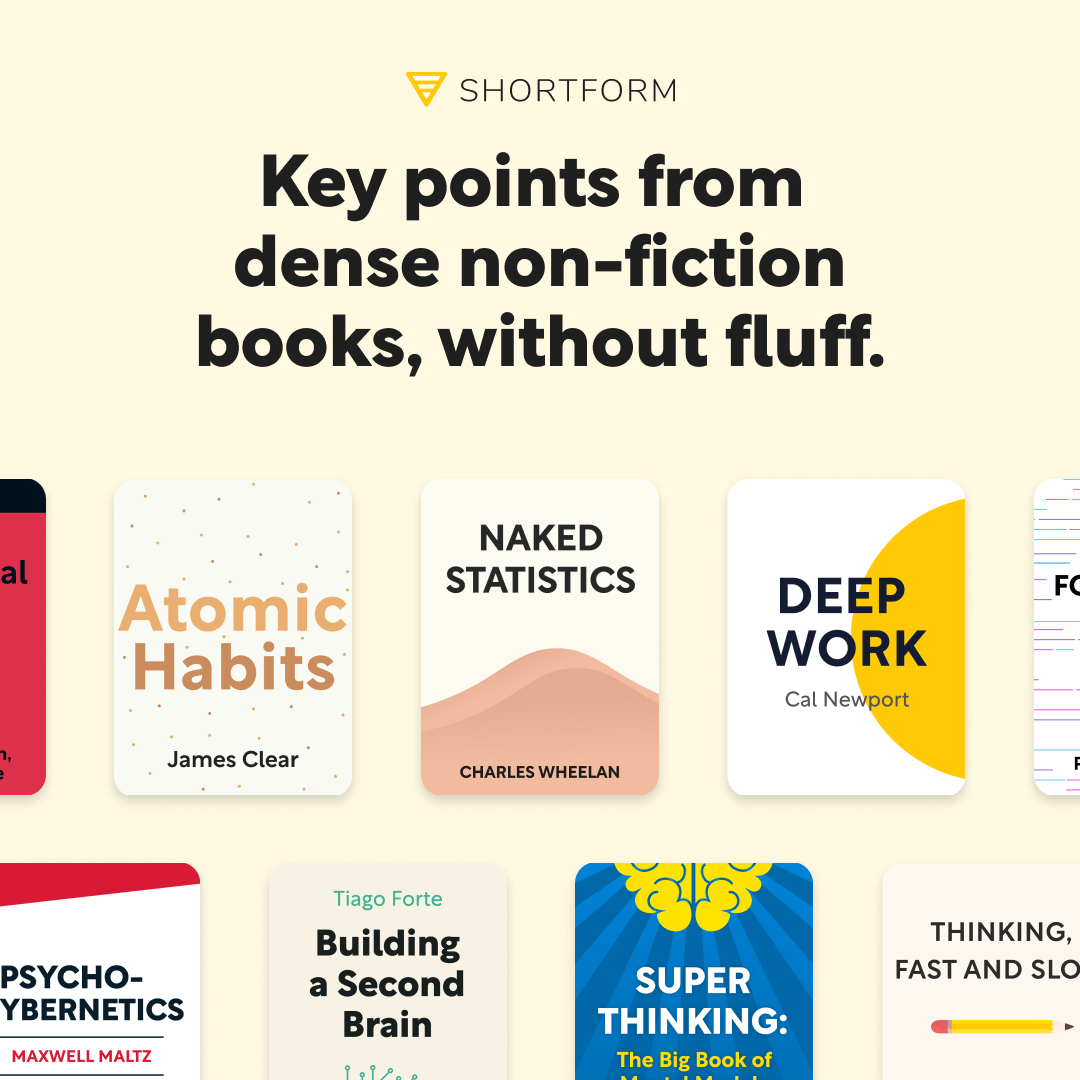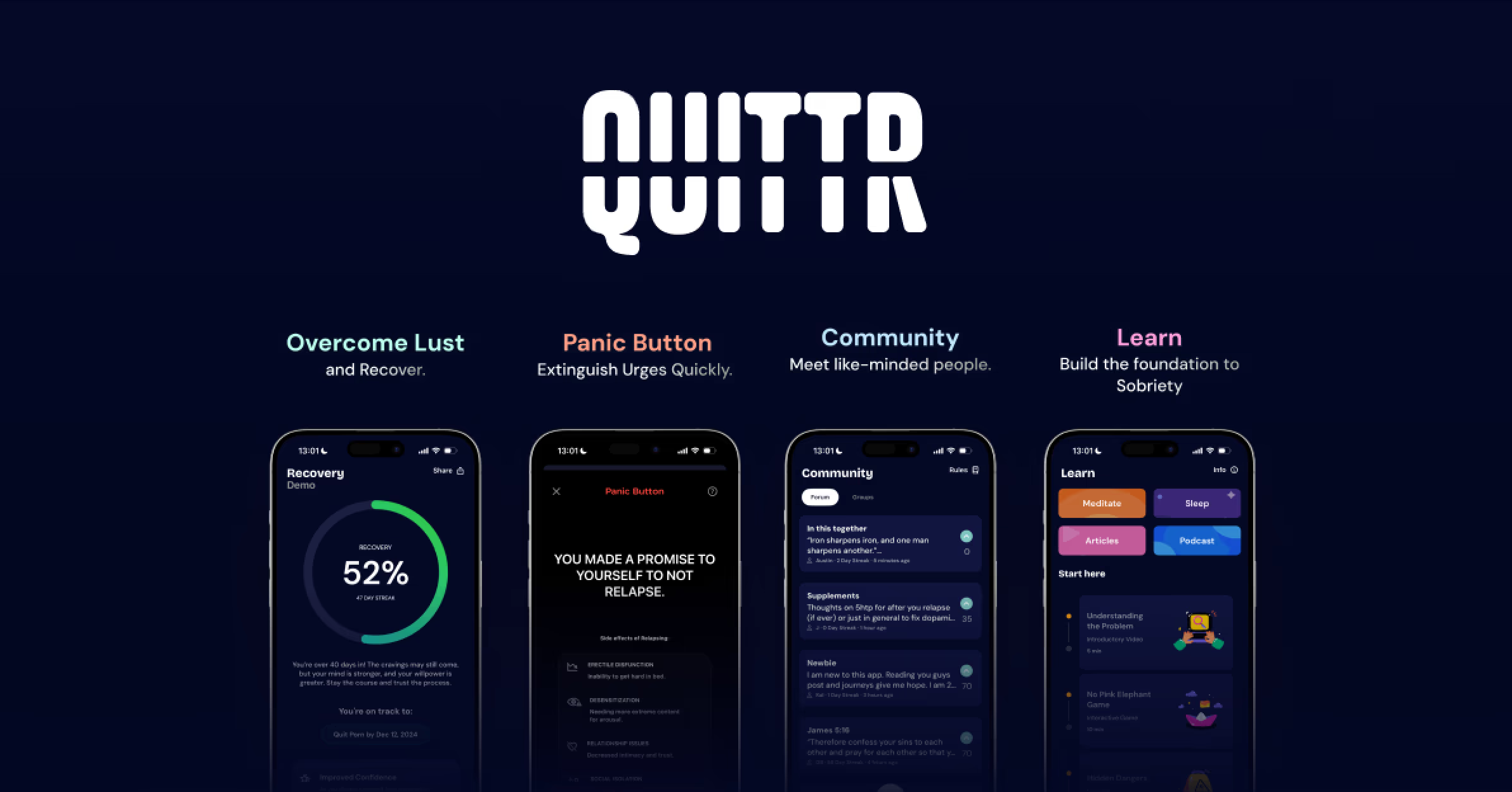The United States has made incredible strides in treating acute medical emergencies. If you break a bone, suffer a heart attack, or need life-saving surgery, there’s no better place to be. But staying out of the hospital in the first place? That’s a different story—and it should be the real goal.
Just take a look at the top 10 leading causes of death in America. Eight of them are largely preventable with lifestyle intervention, and one—COVID-19—has an extremely low mortality rate among otherwise healthy individuals (link to source). That means the biggest threats to your life aren’t sudden emergencies. They’re chronic conditions that develop slowly and silently over time.
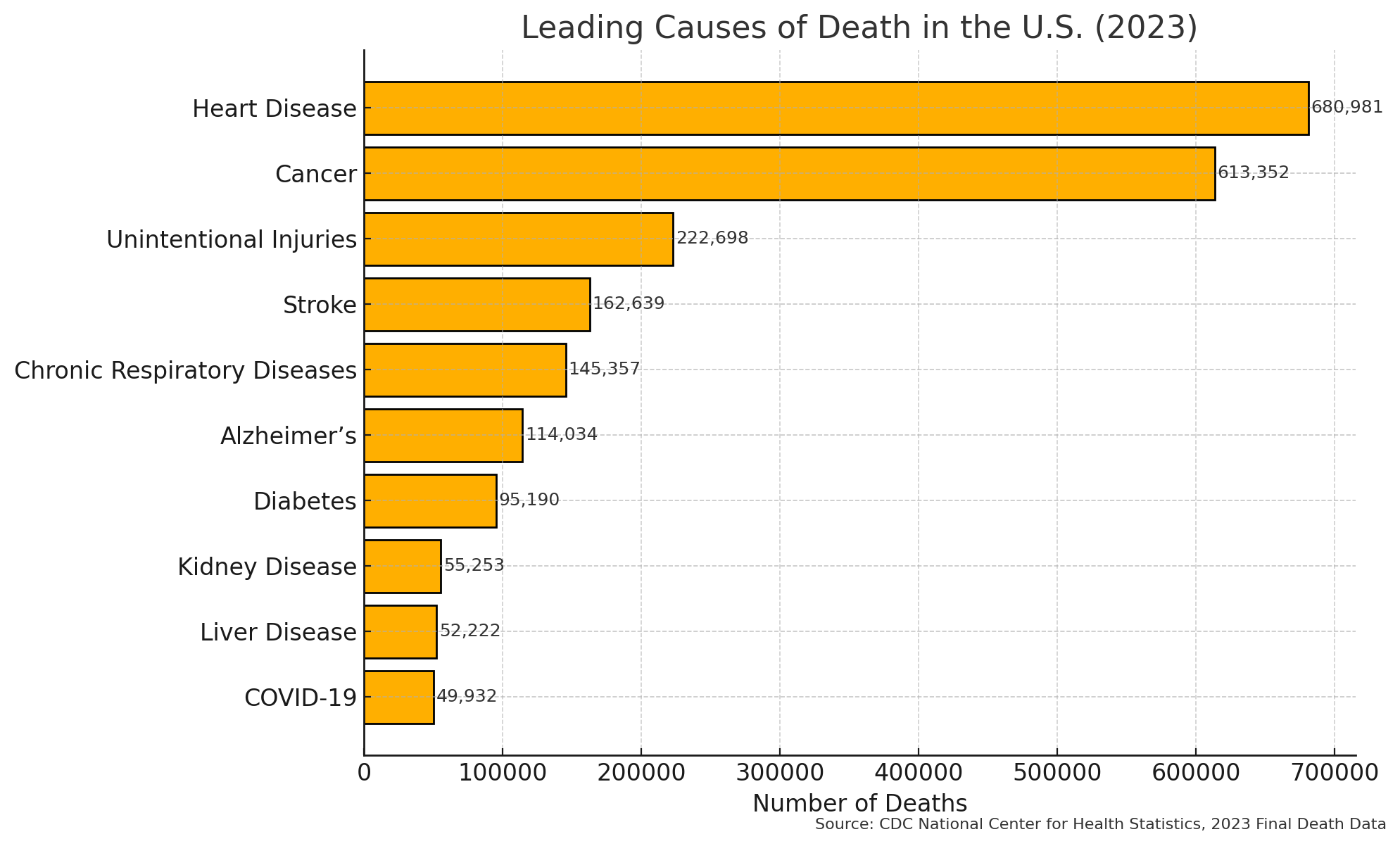
To stay ahead of those risks, you need a medical team that knows what to look for, how to catch it early, and how to create a plan that keeps you performing at your best before anything goes wrong. That’s where Rebel Health Alliance comes in.
Rebel Health Alliance is a hybrid telehealth concierge medicine practice focused on metabolic health, longevity, and athletic performance. I consider myself a healthy guy, and at 40, I’m still relatively young.
I wasn’t looking for someone to just monitor me for disease—I wanted a team that could help me push my limits. I’m training to step back into the ring for a professional boxing match, and I was curious to see what Rebel could offer me on the performance side of things.
Each section of this review is written as a standalone snapshot of my experience. That’s intentional. While all the services Rebel offers are deeply interconnected, I found it easier to explain—and for you to understand—each part on its own.
The process isn’t linear, and there’s plenty of overlap between phases. Trying to write a strictly chronological review would’ve made it harder to show how each piece fits into the bigger picture. So instead, I’ve broken it down into the individual components that, together, define the Rebel Health experience.
What happens when you sign up to Rebel Health?
After you sign up with Rebel Health, the first thing you do is complete a round of extensive bloodwork and a genetic test. This approach is powerful because it gives you a clear snapshot of your current health status. More importantly, it can reveal hidden issues—ticking time bombs—that may not show symptoms until it’s too late. For some people, it might even flag serious conditions before they become problems.
In my case, I had a few key things I wanted to understand.
First, I needed to make sure I wasn’t being delusional about my body’s ability to compete. Feeling young and being generally healthy are one thing, but father time doesn’t care how you feel. In professional boxing, I’d be going up against opponents in their 20s and 30s. If my testosterone or IGF-1 levels weren’t where they needed to be, I might be biting off more than I could chew.
If anything in my system was off—even slightly—I wanted to know so I could put a plan in place to fix it. Not just to get in fighting shape, but because I want to live optimally and stay healthy long-term.
Book a free consultation call here
Rebel Health Alliance Genetic Testing
The genetic test process is simple. They mail it to you, you provide a saliva sample, send it back, and the results show up in your Rebel Health Alliance dashboard.
What you get is a breakdown of how your body is wired—based entirely on your individual genetic profile. From there, Rebel helps you build a game plan that’s tailored to your genotype, allowing you to get the most out of your body.
Once you get the results, you sit down with a genetic couselor who looks over the results alongside your other test results. You can actually purchase the genetic seperately from the entire Rebel Health Alliance service and analyze the results yourself without a genetic counselor.
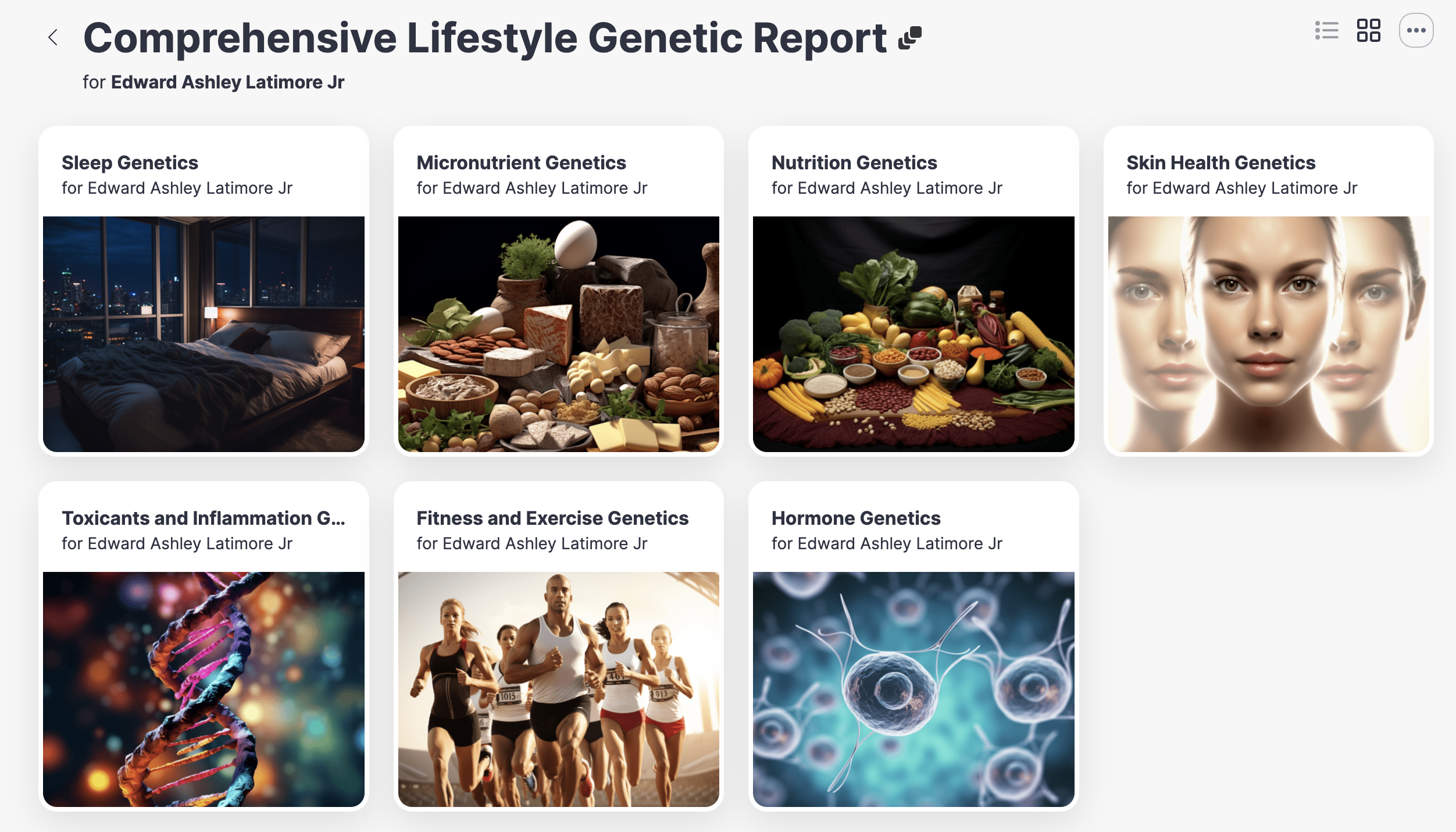
That said, it’s important to remember that your genotype doesn’t guarantee your phenotype. Or put differently: just because your DNA says something should be a certain way doesn’t mean that’s how it shows up in real life. Rebel understands this and accounts for it in how they interpret your results. The genetic report is broken down into seven main categories:
Here’s a cleaned-up, polished version of your section on the Rebel Health Genetic Test. I’ve improved clarity, grammar, and flow while preserving your tone and adding just a touch of flavor where it enhances readability or insight:
Sleep Genetics

This section breaks down your genetic tendencies related to sleep, including:
- Ideal sleep window
- Best time to go to bed
- Sensitivity to sleep deprivation
- Sensitivity to caffeine
- Deep sleep quality
- Sleeplessness risk
- Tendency toward excessive daytime sleepiness
- Tendency to move during sleep
Sleep quality is one of the most underrated pillars of health and performance. Understanding your genetic blueprint here can uncover hidden disadvantages—and unexpected advantages.
For example, I found out that I metabolize caffeine more slowly than average, which explained some sleep issues I hadn’t connected to my afternoon coffee habit. By cutting off caffeine earlier in the day—well before the typical 2:00 p.m. cutoff—I noticeably improved my sleep.
I also learned I’m genetically more inclined to be a night owl. That tracks. I’ve always preferred late nights, even if I have no problem waking up early. I chalk that up to discipline more than biology—years of doing hard things whether I feel like it or not. But it’s still helpful to understand what my default wiring looks like.
Micronutrient and Nutrition Genetics
In the report, micronutrient and nutrition genetics are split into two sections. That makes sense—they’re packed with individual insights and cover a wide range of biological processes. Together, they show how your body is programmed to handle the food you eat, where you’re likely to run into deficiencies, and how efficiently you convert and absorb nutrients.

The micronutrient section includes:
- Vitamin A and carotenoids
- B vitamins
- Vitamin D
- Vitamin E
- Electrolytes
- Choline
- Nitric oxide
- Selenium and iodine
- Iron

The nutrition section covers:
- Hunger and satiety regulation
- Protein metabolism
- Fat and saturated fat metabolism
- Omega-3 fatty acid processing
- Carbohydrate response
- Plant cholesterol sensitivity
- Insulin resistance risk
- Food allergies and sensitivities
Of all the categories in the genetic report, this one was the most valuable for me. General nutrition advice works well for a lot of people—but not for everyone. I have a friend who followed a strict ketogenic diet and never got into ketosis. No matter how much he restricted carbs, his body wouldn’t adapt. That’s likely due to his genetic profile, not his willpower.
This report gives you a nutritional framework built around your biology, not just general guidelines. To be clear, this isn’t a weight loss plan—calories in vs. calories out still applies. But it helps you dial in what your body responds to best and where you’re lacking support.
For example, my genetics indicate that I efficiently metabolize protein, carbs, and fat, and I’m naturally resistant to high triglycerides. But I also have a reduced ability to process selenium and a higher need for omega-3 fatty acids. That selenium detail lined up perfectly with what we later found in my thyroid panel—and led to one of the most impactful interventions I’ve made.
Skin Health Genetics

This section reveals your skin’s tendencies in several key areas:
- Elasticity and hydration
- Antioxidant capacity and glycation risk
- Susceptibility to aging
- Likelihood of developing skin spots
- Sun sensitivity
- General dermatological risks
Let me preface this by saying: I’m a Black man. But interestingly, I have a few skin genes more common in people of European ancestry. That said, I still have a higher resistance to UV damage and slower skin aging, which lines up with my experience.
From a health optimization perspective, this section isn’t hugely actionable. You’re not going to overhaul your training or supplement stack based on your tanning genes. But it is cool to see how your genome affects how you age and how your skin responds to the environment.
Toxicants and Inflammation Genetics
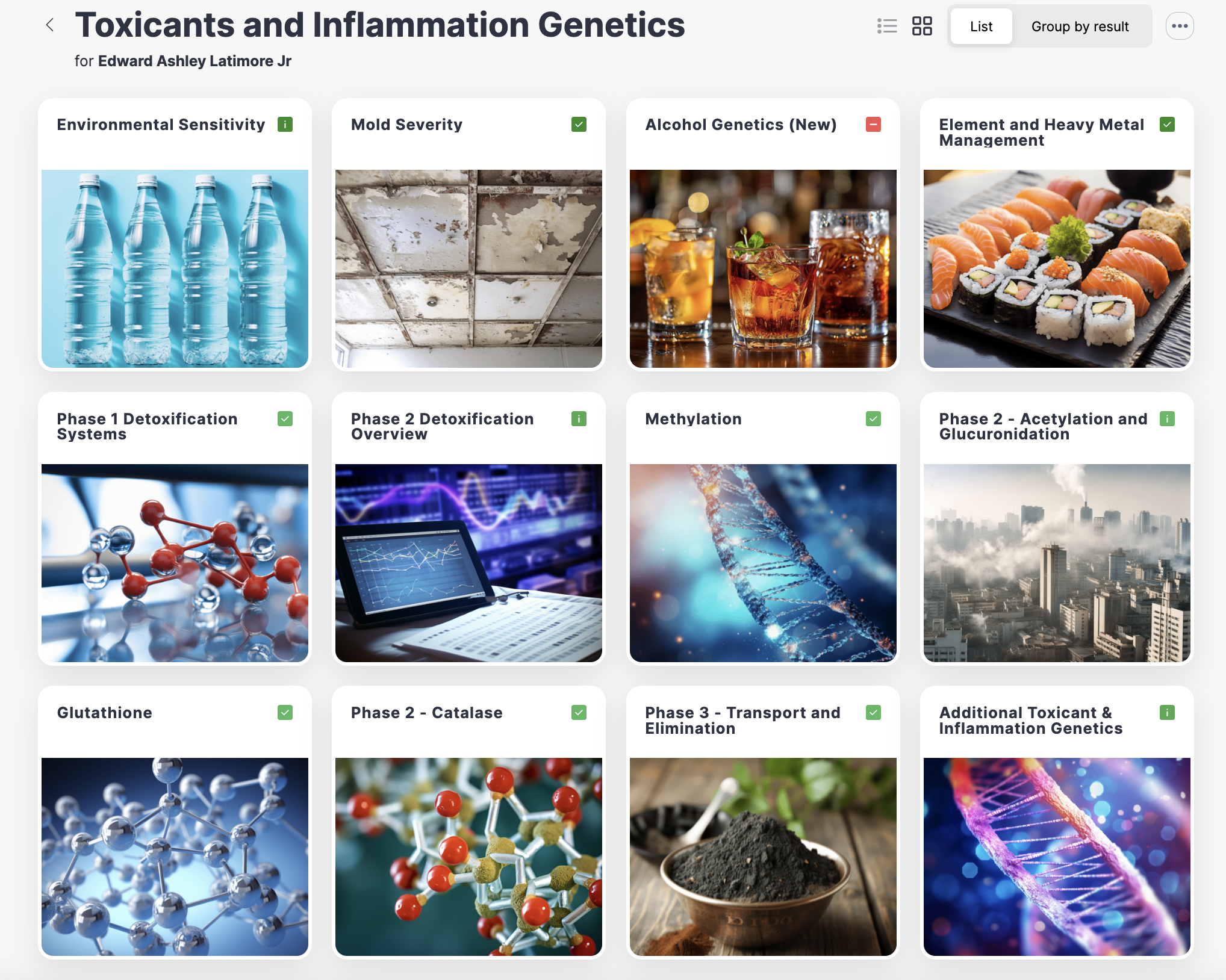
This part of the report focuses on your body’s ability to:
- Process and eliminate mold
- Handle alcohol
- Detoxify heavy metals
- Methylate efficiently
- Clear toxins in various detox pathways
Most of this information is just good to know—especially if you’re managing your environment and lifestyle well. Even if you genetically process heavy metals efficiently, mercury exposure is still toxic. That said, this section could be helpful for someone who eats a lot of fish or works in an environment where lead or chemical exposure is possible.
The alcohol report, though, hit home. Genetically, I’m predisposed to alcoholism. I metabolize alcohol quickly, which makes it easier to overconsume. I also have genes that reduce the severity of hangovers, which means I could drink more without immediate consequences. Add in a neurotransmitter profile that leans toward impulsivity and emotional reactivity, and it’s no surprise I had problems with alcohol.
To someone who knows me now—sober for over a decade—that might not line up. But in hindsight, the signs were always there. Even now, I still wrestle with impulsivity in smaller ways, like spending money or drinking too many coffees.
If you’ve ever struggled with addiction or noticed unhealthy patterns, this section offers some serious insight. It doesn’t just explain what is happening—it gives you a biological context for why, and that knowledge can be a game changer when it comes to behavior change.
Fitness and Exercise Genetics

This section explores your genetic blueprint when it comes to physical performance, including your:
- Propensity to build strength and muscle
- Ability to handle fatigue and recover
- Susceptibility to injury
- Preference for high-intensity vs. aerobic conditioning
- Response to aerobic training
- VO₂ max potential
This was the section I was most curious about going into the Rebel Health experience. With my return to the ring coming up, I thought it would be interesting to peek under the hood and see if, genetically speaking, I have any business trying to be an athlete at all.
One result that didn’t surprise me: I have the genetics to build muscle and be a power athlete. That tracks with what I’ve always known about myself. Looking back, I sometimes wonder if I missed my true calling not playing football earlier. I was running a 4.55 forty-yard dash at 250 pounds—there aren’t a lot of guys built like that walking around.
That said, the more surprising insight was that I’m also genetically well-suited for endurance. I’ve always enjoyed running, even back when I was playing defensive end and carrying a lot more weight. These days, boxing has shifted my focus more toward conditioning, and I genuinely enjoy the cardio and volume work that the sport demands. The genetic data backed up what I’ve long felt: I’m built for power, but I can go the distance too.
For me, this section was more of a vanity metric than a necessary tool—but I can see how useful it could be for someone trying to optimize their fitness routine. If you’re short on time and can only train a few days a week, knowing whether your body will respond better to lifting or cardio makes it easier to structure your workouts around what works, not just what’s trendy.
Hormone Genetics
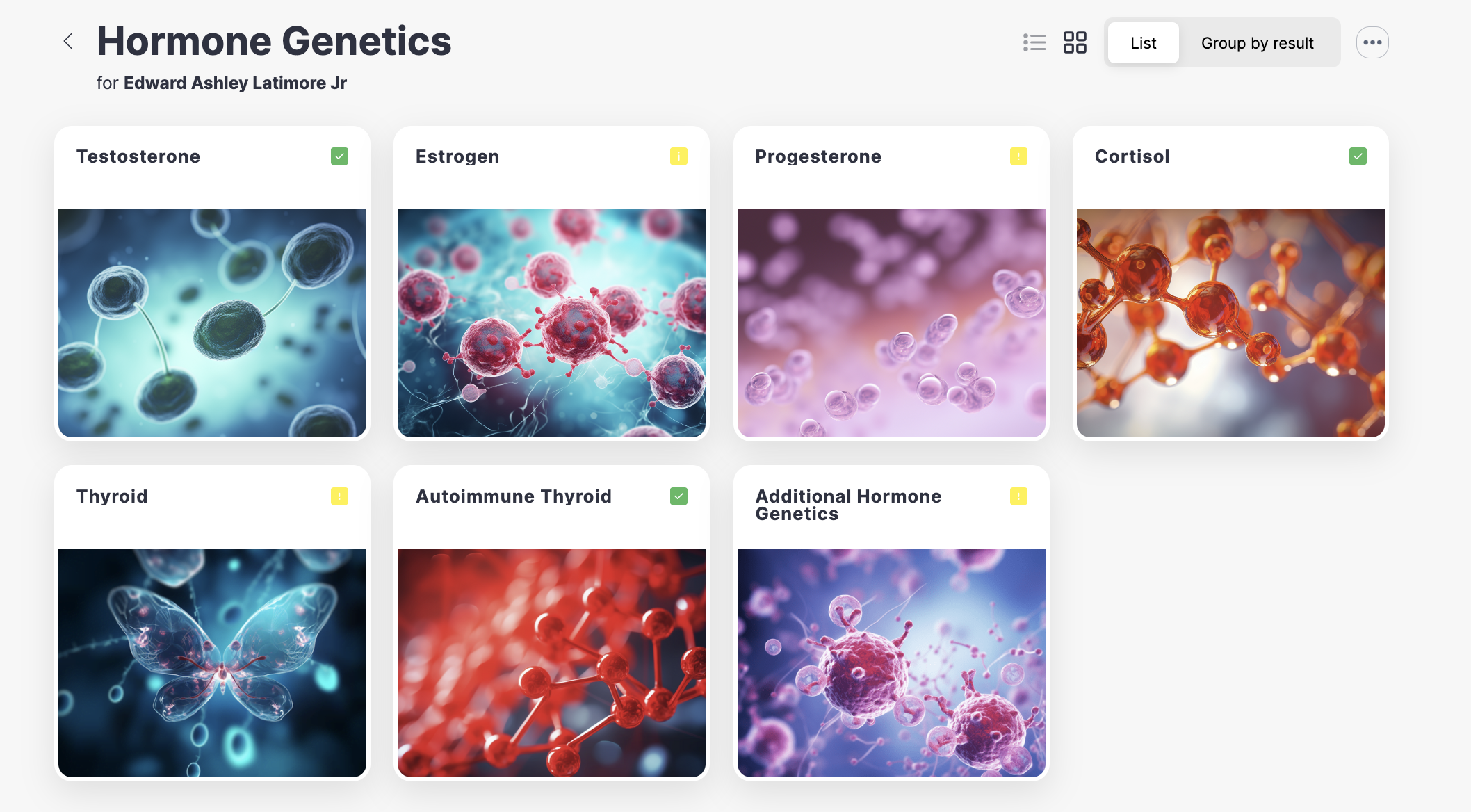
This section covers your body’s genetic tendencies in hormone production and regulation, including:
- Testosterone
- Estrogen
- Progesterone
- Cortisol
- Thyroid hormones
This part of the report can answer a lot of unspoken questions—things you might’ve always wondered about but never had a framework to explain. Take testosterone, for example. Your baseline testosterone levels are influenced heavily by your genetic profile. Some guys are naturally wired to sit at 800+ nanograms per deciliter. Others might never get there without TRT or peptide therapy. And that’s okay.
What’s not okay is if your testosterone is low, and you have no idea why. This report includes reference ranges by age group (link), so you can compare your levels to the norm. If your levels are consistently below average, and your training, diet, and sleep are dialed in, it could be genetic—and now you know what you’re working with.
Another powerful insight I got from this section involved cortisol. I’d never really thought about stress hormones from a genetic standpoint, but it turns out I have a predisposition to elevated cortisol. If you’re someone who tends to be anxious, tightly wound, or always in “go mode,” your DNA might be partially to blame—not just your environment.
But the most impactful discovery for me was around thyroid function. My genetic profile flagged potential dysfunction in this area—and my bloodwork backed it up. My reverse T3 was consistently high, something most doctors don’t even test for. Rebel Health put me on 25 mcg of liothyronine, a synthetic form of T3, along with 200 mcg of selenium per day.
That protocol lit a fire under a metabolism I didn’t even realize had stalled. I had been training consistently and watching my diet, but I couldn’t get under 225 pounds. After starting the medication and supplement combo, I lost 10 pounds of body fat in two weeks—and felt more energetic than I had in months.
This wasn’t some magic pill or shortcut. It was the result of targeted intervention based on data—a level of personalization that you just don’t get from most doctors who stop testing after your TSH comes back normal. That’s the difference. Rebel didn’t just look at the surface. They looked deeper, and it paid off.
Rebel Health Bloodwork
Any athlete knows the importance of bloodwork. But what many don’t realize is that you don’t need to wait for a doctor’s script to get it done. More importantly, the standard labs ordered by your primary care physician barely scratch the surface. At most, you’ll get a CBC panel, some basic metabolic markers, and a standard lipid profile. That’s fine for detecting disease—but it’s not nearly enough if you want to perform, recover, and age at your best.
That’s why Rebel Health Alliance starts with some of the most comprehensive blood testing I’ve ever encountered. We’re not talking about checking just your cholesterol or glucose. They analyze over 90 biomarkers, organized into categories that actually matter for long-term health and performance.
The information is presented in an easy-to-read, color-coded, categorized dashboard interferface, but you can download the original lab report for your own interests.

Rebel Health’s dashboard organizes the bloodwork by body systems. While this is convenient and easier to understand, I think they should have organized the results the way have I below.
Here’s what they test—and why it matters.
Cardiovascular & Lipid Health
This goes way beyond just LDL and HDL. Rebel measures particle size, ApoB, Lipoprotein(a), and inflammatory markers like hs-CRP and fibrinogen. These show your actual heart disease risk, not just a general estimate based on population averages.
Most doctors still focus on LDL-C and HDL-C—the standard cholesterol numbers. But those values are like weighing a car without checking if the brakes work. They give you a snapshot, but they miss the details that really matter. Here’s why those deeper markers are essential:
- ApoB (Apolipoprotein B): Directly counts the number of plaque-forming particles in your blood. You can have normal LDL-C but still be at high risk if your ApoB is elevated.
- LDL Particle Size and Count (LDL-P): Measures whether your LDL is made up of small, dense particles that are more likely to cause plaque buildup. Two people with the same LDL-C can have completely different risk profiles based on this alone.
- Lipoprotein(a): A genetic wildcard. It’s sticky, inflammatory, and almost entirely unresponsive to diet or lifestyle. High levels significantly increase your risk of heart attack and stroke—even if everything else looks good.
- hs-CRP (high-sensitivity C-reactive protein): Detects chronic, low-grade inflammation—the kind that silently damages arteries.
- Fibrinogen: A clotting factor that, when elevated, makes your blood “stickier” and more prone to forming dangerous clots.
These numbers might not seem urgent when you’re 25 and shredded. But if you’re in your 30s or 40s, training hard, supplementing aggressively, or eating a high-calorie diet, understanding your real cardiovascular risk can prevent disaster later.
This isn’t about being alarmist—it’s about using data to stay ahead. You want to fix a problem when it’s still just numbers on a page, not when you’re being wheeled into surgery.
Hormones & Androgens
This panel includes total testosterone, free testosterone, SHBG, DHT, estradiol, prolactin, cortisol, DHEA, and IGF-1. It’s a full-spectrum look at your hormonal horsepower—essential if you care about energy, muscle, libido, or recovery.
Here’s a breakdown of what they test and why it matters:
- Total Testosterone: Gives you a general idea of your hormone production. But it doesn’t tell the whole story.
- Free Testosterone: This is what’s actually usable. You can have a great total T score and still feel awful if your free T is low.
- SHBG (Sex Hormone Binding Globulin): Regulates how much testosterone is available. High SHBG binds testosterone, making it biologically inactive.
- DHT (Dihydrotestosterone): A more potent form of testosterone that drives strength, confidence, and overall intensity. Many men unknowingly lower their DHT by using medications like finasteride.
- Estradiol: Often misunderstood. Too much and you feel bloated and moody. Too little and your joints ache, libido tanks, and energy dips.
- Prolactin: Elevated levels can suppress testosterone and interfere with recovery and sexual function.
- Cortisol: Your primary stress hormone. Chronically elevated cortisol wrecks testosterone, increases belly fat, and disrupts sleep.
- DHEA: A precursor to testosterone. Low DHEA is common in overtrained or chronically stressed men.
- IGF-1 (Insulin-like Growth Factor 1): Reflects growth hormone activity. Vital for muscle repair, recovery, and longevity.
This panel isn’t just for guys who feel “off.” It’s for anyone who wants to understand what kind of horsepower they’re really working with. When I got my results, I learned that my testosterone was in a good range—but my DHT was suppressed. I had been using topical finasteride for hair loss, and that was likely the culprit. I cut it out, and not long after, my performance in the gym and in sparring noticeably improved.
If you’re just trying to get by, the basic labs are fine. But if you’re training hard, chasing longevity, or stepping into the ring like I am, you need this level of precision. It’s not just about feeling better—it’s about knowing what’s really happening inside your body so you can optimize it.
Thyroid Panel
Most doctors test TSH, and maybe Free T4. Rebel tests all of it: TSH, Free T3, Free T4, Reverse T3, and thyroid antibodies.
Stopping at TSH is like looking at a fuel gauge without knowing if the engine is turning over. You might see “normal” results but still feel sluggish, foggy, or stuck. That was exactly my experience.
My TSH looked fine. So did my Free T3 and T4. But when Rebel tested Reverse T3, it was sky-high. That single marker explained why my metabolism felt stalled despite clean eating and hard training.
Elevated Reverse T3 acts like a metabolic brake, blocking Free T3 from doing its job. No other doctor had looked at it, so I had been spinning my wheels for nothing.
The fix? Rebel put me on 25 mcg of liothyronine (T3) and 200 mcg of selenium, based on my bloodwork and genetic sensitivity to thyroid dysfunction. Within two weeks, I dropped 10 pounds of body fat and felt like my metabolism was finally firing again.
Thyroid function is one of the most overlooked aspects of men’s performance. It controls your energy, fat-burning ability, mood, and recovery. And unless you’re testing all five key markers, you could be missing a major bottleneck. Rebel doesn’t stop at “normal.” They test to optimize.
Metabolic & Insulin Sensitivity
Most people think if their fasting glucose or A1c is normal, they’re in the clear. But that’s like checking the score at halftime and assuming you’ve already won the game. Blood sugar issues develop over years, and by the time you’re officially diabetic, the damage is already done. That’s why Rebel Health Alliance goes deeper.
They don’t just look at Hemoglobin A1c, which gives you a 3-month average of blood glucose. They also check fructosamine, which shows your blood sugar trends over the past 2–3 weeks—much more useful if you’re actively making changes or want to catch things before they spiral.
Then there’s fasting insulin, which is a game-changer. High insulin levels—even if your glucose is normal—mean your body is fighting to keep your blood sugar down. That’s insulin resistance in action, and it’s a precursor to weight gain, low energy, brain fog, and eventually type 2 diabetes.
But the most advanced part? The LP-IR score, a lab-developed insulin resistance index based on lipoprotein particle analysis. It gives you a glimpse at your future—your trajectory. You could have a perfect A1c and still be trending toward metabolic syndrome, and this score tells you that years in advance.
Why does this matter for athletic performance and men’s health? Because insulin resistance kills energy, wrecks hormone balance, and sabotages your recovery. If your cells aren’t responding to insulin properly, you’re not efficiently shuttling nutrients into muscle. You’re more inflamed, more fatigued, and more prone to storing fat—even if you’re eating clean.
Getting ahead of this isn’t just about avoiding diabetes. It’s about maintaining peak performance, brain clarity, and long-term health. Rebel doesn’t wait until you’re broken to step in. They give you the data to course-correct before there’s a problem.
Micronutrient & Nutritional Markers
This is the part of the test most people overlook—but it has some of the biggest day-to-day impact. Rebel Health Alliance runs a full nutrient panel that includes Vitamin D, B12, folate, iron markers (including ferritin, transferrin saturation, TIBC), and uric acid. These aren’t just numbers to make your chart look more complete—these are performance levers.
- Vitamin D isn’t just about bone health. It acts like a hormone in the body and plays a role in testosterone production, immune resilience, and even mental health. If your levels are low—and most people’s are, especially with indoor training and desk jobs—you’re leaving strength and energy on the table.
- Vitamin B12 and folate are essential for red blood cell production, neurological health, and DNA repair. If you’re deficient, you’ll feel it in your stamina, recovery, and mental sharpness. Low B12 is one of the hidden culprits behind fatigue in high-performing men.
- Iron markers go far beyond just hemoglobin. Ferritin tells you how much iron you’ve got in storage, and transferrin saturation shows how well your body is transporting it. If either is off—even slightly—you’ll struggle with endurance, oxygen delivery, and post-workout recovery. This matters even more if you’re an endurance athlete or train at high intensities.
- Uric acid might sound random, but it can be a proxy for metabolic health. Elevated levels are associated with systemic inflammation, insulin resistance, and joint issues. If your joints ache more than they should or your recovery feels slower, this number could explain why.
What’s powerful about this panel is that it catches what most people chalk up to “getting older” or “overtraining.” A dip in mood, lower energy, slower recovery—it’s often not a motivational issue. It’s a micronutrient issue. And when you fix that, you don’t just feel better—you perform better.
Rebel doesn’t rely on guesswork or one-size-fits-all supplement plans. They test exactly where you’re deficient or insufficient, and they tailor your nutrition and supplementation accordingly. That’s the kind of precision you want if you’re serious about optimizing how you feel, train, and live.
Liver & Kidney Function
 You might not think much about your liver or kidneys unless something goes wrong—but by the time there’s a problem, it’s already too late. That’s why Rebel Health Alliance includes a full panel to assess how well your filtration and detox systems are holding up under the stress of training, diet, supplements, and daily life.
You might not think much about your liver or kidneys unless something goes wrong—but by the time there’s a problem, it’s already too late. That’s why Rebel Health Alliance includes a full panel to assess how well your filtration and detox systems are holding up under the stress of training, diet, supplements, and daily life.
They measure AST, ALT, and GGT to assess liver function. These enzymes can spike when your liver is under stress from overtraining, alcohol, medications, or even high-protein diets. If you’re taking supplements—or especially if you’ve dabbled in PEDs—this is non-negotiable. Your liver’s ability to clear toxins directly affects everything from hormone balance to recovery time.
On the kidney side, they include creatinine and eGFR, the standard markers for kidney filtration, along with cystatin C, which provides a more sensitive and accurate picture of kidney health, especially if you’re lean or muscular. Since creatinine is a byproduct of muscle metabolism, lifters and athletes often show falsely elevated levels—cystatin C gives you a clearer signal that cuts through that noise.
Why does this matter for athletes and high performers? Because these organs are working behind the scenes to regulate hydration, electrolyte balance, blood pressure, and the clearance of waste products from hard training and high caloric intake. If your liver or kidneys are even slightly underperforming, your recovery slows down, your inflammation rises, and your performance suffers—even if everything else looks “fine.”
Rebel doesn’t just want you to look good or feel okay—they want your internal systems running clean and efficient. That means catching subtle dysfunctions before they become symptoms. And when your filtration systems are dialed in, everything else—from hormone balance to energy to mental clarity—levels up with it.
Complete Blood Count (CBC) with Differential
This is the most basic test on the panel—but don’t let that fool you. The CBC with differential checks your red blood cells, white blood cells, hemoglobin, hematocrit, platelets, and immune cell breakdown. It may be standard, but it’s essential for spotting things most people overlook.
For athletes, red blood cell metrics like hemoglobin and hematocrit are critical. They determine how well your body transports oxygen. If these are even slightly low, you’ll feel it—your endurance drops, recovery slows, and you hit a wall faster during training.
White blood cells and their subtypes (neutrophils, lymphocytes, monocytes, eosinophils, and basophils) give you a snapshot of immune function. If you’re always getting sick after hard training cycles or your body’s constantly inflamed, this panel can show you the hidden stress load your immune system is carrying.
Platelets play a role in clotting and vascular repair. If they’re too low, you bruise easily and recover slowly. If they’re too high, it could indicate inflammation or other systemic stress.
In short, the CBC isn’t just about ruling out disease—it’s about identifying how well your body can repair, recover, and resist stress. For anyone who trains hard or pushes themselves mentally and physically, that information isn’t just nice to have—it’s foundational. Rebel Health doesn’t skip over the basics. They make sure the fundamentals are solid so everything else you build on top of it performs as it should.
Inflammation & Clotting Risk
Most people think inflammation only matters if you’re sick, overweight, or dealing with a chronic disease. But even lean, fit men can carry hidden inflammation—and that’s the kind that does the most damage over time. Rebel Health Alliance tests for deeper indicators like homocysteine, Lp-PLA2, and fibrinogen, which go far beyond what you’d see in a standard blood panel.
- Homocysteine is an amino acid that, when elevated, damages blood vessel linings and raises your risk for heart disease and stroke. It’s also linked to cognitive decline and poor methylation—an essential process for detox, DNA repair, and hormone regulation. If you’re pushing hard in the gym but your methylation pathways are clogged, you’ll hit a wall eventually.
- Lp-PLA2 is an enzyme associated with inflamed plaque inside your arteries. This test can tell you whether your arteries are silently inflamed—even if your cholesterol and blood pressure look perfect. It’s a sneak preview of whether that hard-earned fitness is actually protecting your heart—or just covering up risk.
- Fibrinogen is a clotting factor, but when it’s too high, it makes your blood “stickier” and increases the risk of clots, stroke, and vascular inflammation. Elevated fibrinogen is one of the earliest signs that your body is in a low-grade inflammatory state—even if you feel fine.
Why does this matter to guys like us? Because you can be fit, strong, and ripped—and still be walking around with silent cardiovascular risk. Most heart attacks don’t come from out-of-shape guys keeling over on the couch. They come from stressed, high-performing men who thought they were fine—until they weren’t.
Prostate and reproductive health screening

This part of the panel might feel premature if you’re in your 30s or 40s, but baseline screening for prostate health is one of the smartest long-term moves a man can make. Rebel Health Alliance includes both total PSA (Prostate-Specific Antigen) and free PSA, which together give a clearer picture of what’s going on under the hood.
Why does this matter? First, PSA isn’t just about cancer—elevated levels can also reflect inflammation, benign enlargement, or physical trauma to the prostate. That last point is especially relevant if you’re in combat sports, cycling, or any activity that involves repeated impact or pressure to the groin or pelvic area. Punches below the belt, hard sparring sessions, or even a tough ride can elevate PSA temporarily and skew your numbers. Knowing your baseline when you’re healthy and uninjured gives future tests context.
Second, free PSA helps distinguish between benign and potentially malignant elevations. Total PSA alone can be misleading—especially if it’s borderline. A high free-to-total PSA ratio generally indicates less risk, while a low ratio might warrant further testing. This level of nuance is something most primary care physicians won’t dig into unless you’re already symptomatic.
Men don’t usually think about prostate health until something goes wrong—difficulty urinating, low libido, or worse. But that’s too late. Getting ahead of this early doesn’t just protect you from cancer. It helps you preserve your quality of life, testosterone function, and sexual health as you age.
Rebel doesn’t treat prostate screening as an afterthought. They include it because high-performing men should be proactive about every system that contributes to vitality—not just the ones that look good in the mirror.
See Rebel Health Alliance for yourself
Rebel Health Physical Fitness Tests
Rebel Health Alliance coordinates medical testing through hospitals and diagnostic centers near you. Because they have licensed MDs on staff, they can issue referrals and requisitions for advanced procedures—something most concierge wellness practices simply can’t do.
In my case, that capability was especially valuable. Since I’ll be over 36 when I return to the ring, my state athletic commission requires both a full neurological exam and a treadmill stress echocardiogram for fight clearance. Normally, getting those tests scheduled is a bureaucratic nightmare. Our healthcare system is reactive—it waits until something goes wrong before giving you access to diagnostics. Since I wasn’t symptomatic and only needed clearance to fight, no one would schedule the tests without a referral.
But with Rebel, that wasn’t a problem. Two quick referrals from Dr. Weir got both tests scheduled and completed without hassle. Even better, because the tests were medically ordered, my insurance covered part of the cost—a big win, especially considering how expensive these procedures can be when paid out of pocket.
In addition to lab work and genetic testing, Rebel starts everyone off with three key physical tests:
- VO₂ Max
- DXA Body Composition Scan
- Coronary Artery Calcium (CAC) Score)
The first two don’t require a doctor’s referral, but they’re not always easy to schedule on your own. Rebel doesn’t just suggest you get them done—they actually coordinate the logistics, making sure you’re booked at reputable centers with modern equipment and qualified staff.
Why these three tests? Because they give you an objective, measurable baseline of your cardiovascular health, metabolic fitness, and long-term disease risk. This is preventative medicine with precision, not guesswork.
- Coronary Artery Calcium (CAC) Score:
This test measures calcified plaque in your coronary arteries. It’s one of the most accurate, non-invasive predictors of cardiovascular disease. Even if your cholesterol looks perfect, a high CAC score can reveal hidden arterial damage and significantly raise your future cardiac risk. - DXA Scan (Dual-Energy X-ray Absorptiometry):
Most people know this as a way to measure body fat, but its true value is in detecting what you can’t see in the mirror—visceral fat. That’s the dangerous stuff that wraps around your organs, drives inflammation, and raises your risk for insulin resistance, cardiovascular disease, and metabolic disorders. You can look lean and still carry visceral fat—and the DXA scan is the best tool for finding it. - VO₂ Max (Maximal Oxygen Uptake):
This measures how efficiently your body uses oxygen during exercise. It’s a direct indicator of aerobic capacity and cardiovascular resilience. For me, VO₂ Max was more of a curiosity—it’s not something I train for directly—but as a boxer, I know that elite conditioning is non-negotiable. Training for a fight naturally improves VO₂ Max, but for the average person, this is one of the strongest predictors of long-term health and lifespan. The higher your VO₂ Max, the better your chances of staying healthy as you age.
Once you’ve completed these baseline tests, that’s when you begin meeting with the Rebel Health specialists. By that point, they have a full-spectrum view of your internal health, physical capacity, and genetic predispositions. From there, they work with you to build a personalized protocol that helps you train smarter, live better, and feel your best—long before anything goes wrong.
The Rebel Health team that builds your plan
When you sign on with Rebel Health Alliance, you don’t just get a doctor—you get a whole team of professionals working together to optimize your health. Here are the specialists you’ll meet with:
- Nurse
- Doctor
- Genetic Counselor
- Nutritionist
- Strength & Conditioning Coach
I personally met with everyone except the strength and conditioning coach. That’s not because they aren’t valuable—quite the opposite. It’s just that I’m already training at a high level with a fight camp and a coach who knows how to get me ready for the ring. And contrary to what a lot of people assume, boxing isn’t centered around heavy lifting or hypertrophy work—it’s skill-based, energy system-focused, and volume-heavy.
If you’re not already working with someone, Rebel’s S&C coach is there to help you design a training program that’s aligned with your health goals—whether that’s fat loss, muscle gain, or just moving better in daily life.
I’ve always considered myself pretty knowledgeable about nutrition, but I know what I don’t know—and I figured I had some blind spots worth addressing. Meeting with Rebel’s nutritionist turned out to be well worth the time. One simple insight? I could simultaneously improve my fiber intake and increase my Omega-3s just by adding chia seeds.
It was a small change, but an efficient one—and it connected directly back to my genetic profile, which showed I had an increased need for Omega-3 fatty acids. The nutritionist had already reviewed my genetic data and brought the suggestion to the call before I even asked. That kind of proactive, personalized insight is what makes this experience different from just Googling your way through health advice.
The genetic counselor was probably my favorite meeting of all. I’m a smart guy with a background in physics, but genetics is not something I’ve ever studied seriously—even casually. Sitting down with someone who could walk me through the science behind my genome and how it translated into actionable health decisions was fascinating.
They didn’t just dump information on me—they answered my questions, explained how the genetic markers connected to my lived experience, and helped me interpret what was meaningful versus what was just noise.
As for the nurse, this was my first point of contact before seeing the doctor. Much like in a traditional medical setting, they covered basic vitals, clarified my intake information, and made sure all my initial questions were addressed. But the vibe here was different—more collaborative, more human. It didn’t feel like they were rushing to check a box or shuffle me along.
Over time, I’ve actually worked with two different Rebel doctors. I started with Dr. Sandeep Palakodeti, and later transitioned to Dr. Alec Weir. Both have been excellent. They’re smart, attentive, and—importantly—interested in helping me reach my specific goals, not just in treating whatever comes up. Whether it was troubleshooting thyroid issues, adjusting supplements, or signing off on medically necessary fight clearance, they were on point. I never felt like I was being handed a generic plan from a template.
What’s stood out most to me is how kind, knowledgeable, and present everyone on the team has been. Every conversation felt like I was working with a partner, not pleading with a gatekeeper. They took the time. They listened. They made suggestions based on my data and my goals. And at a certain point, I actually found myself wondering: How many clients do they have? Because the level of attention they gave me felt like I was their only one.
That’s rare. That’s not the standard in medicine today. But it should be—and at Rebel, it is.
How Much Does Rebel Health Alliance Cost?
Rebel Health Alliance offers three membership tiers:
- $697/month + $1,000 one-time setup fee
- $6,970/year (essentially two months free)
- $29,850 for lifetime service
It’s important to note that Rebel Health does not accept insurance for its membership fees, and these prices do not include testing costs. That said, if you’re insured and in-network, your health insurance will likely still cover many of the tests and procedures ordered by Rebel’s medical team.
Memebers have reported that if you have an HSA, the cost enrollmenet and membership is eligible through either directly paying with the card or a reimbursement. Speaking to the founder and CEO John Murphy, he says “You have to use you HSA card or reimburse yourself, and if you need a receipt, we can make for you.
HSA also covers any of the tests you have to pay for, though I’m not sure about the genetic tests.
Although Rebel Health Alliance is an addition service for your health, there are some surprising savings. The fees you incur through the testing is also Bloodwork, in particular, is available at a significant discount through their partner labs.
To give you a real-world example: if I had ordered all the bloodwork I got on my own—even bundled through the best direct-to-consumer services I could find—I would’ve paid anywhere from $2,000 to $3,000. With Rebel, I paid $423. That’s a massive difference, especially considering the panel included over 90 markers.
Also worth mentioning: Rebel doesn’t tack on extra fees for coordinating services. I paid $120 for a VO₂ Max test—exactly what I would have paid if I had scheduled it myself. The value comes in the convenience and the quality of providers they connect you with—not hidden markups.
Of course, cost is relative. Everyone’s financial and health situation is different, and I’m not going to pretend this is cheap. Instead, I’ll frame it like this:
- If you hired a personal trainer to work with you 3x per week, you’d easily spend $1,000–$2,000/month—and that’s assuming they also know nutrition, which most don’t.
- If you ran advanced blood panels four times a year like I do and paid out of pocket, that’s another $3,000–$4,000/year.
- And every time you see a doctor, even if you’re insured, that still costs time, money, and energy navigating a system built around sickness, not optimization.
With Rebel, you get unlimited communication and visits with not just a licensed MD, but the entire team—nutritionist, genetic counselor, nurse, and even strength and conditioning support. That’s all built in.
Look—I know this service isn’t for everyone. It’s not even for most athletes. But if you’re serious about optimizing your health and performance… if you want access to the medical establishment on your terms, with transparency, respect, and full control… I don’t think there’s a better option out there than Rebel Health Alliance.
Summary of My Rebel Health Alliance Experience
- I gained deep insight into my genetic profile, which allowed me to make targeted adjustments to my training and recovery.
- A previously undiagnosed condition was identified and treated using a combination of traditional medicine and personalized supplementation.
- I had access to a physician who could write referrals for important competition-required tests—something I couldn’t get through traditional channels.
- I saved hundreds—possibly thousands—on bloodwork. Since I get tested quarterly, this was an unexpected but significant financial upside. Honestly, Rebel should advertise this benefit more.
- I have direct, ongoing communication with doctors whenever I have questions or concerns—no waiting rooms, no gatekeepers.
- The only downside: Rebel Health Alliance does not accept insurance for its membership. However, many tests are still covered by insurance if you’re in-network, and their negotiated lab pricing makes most out-of-pocket testing very affordable.
Who Should Sign Up for Rebel Health Alliance
Highly recommended for:
- Anyone serious about health optimization, performance, or longevity.
- People who value preventative care and want to avoid falling through the cracks of a reactive medical system.
- Individuals who’ve had frustrating or dismissive experiences with traditional doctors and want a collaborative, data-driven approach to their health.
Not recommended for:
- People who struggle with follow-through. Rebel Health will give you the plan, but they won’t hold your hand every step of the way. You need to be willing to take ownership of your health.
- Those who are unwilling or unable to invest financially in their well-being. This isn’t a budget solution—it’s a premium service designed to reduce your long-term need for emergency or specialized care, not replace it.
Rebel Health Alliance isn’t for everyone—but if you’re the kind of person who takes your health as seriously as your training, performance, and long-term vitality, it’s one of the smartest investments you can make.

